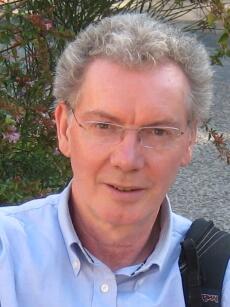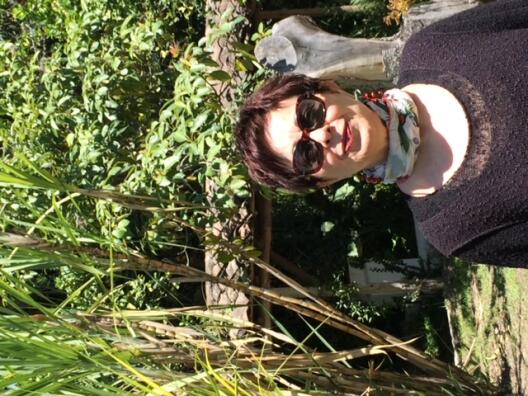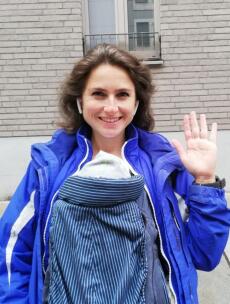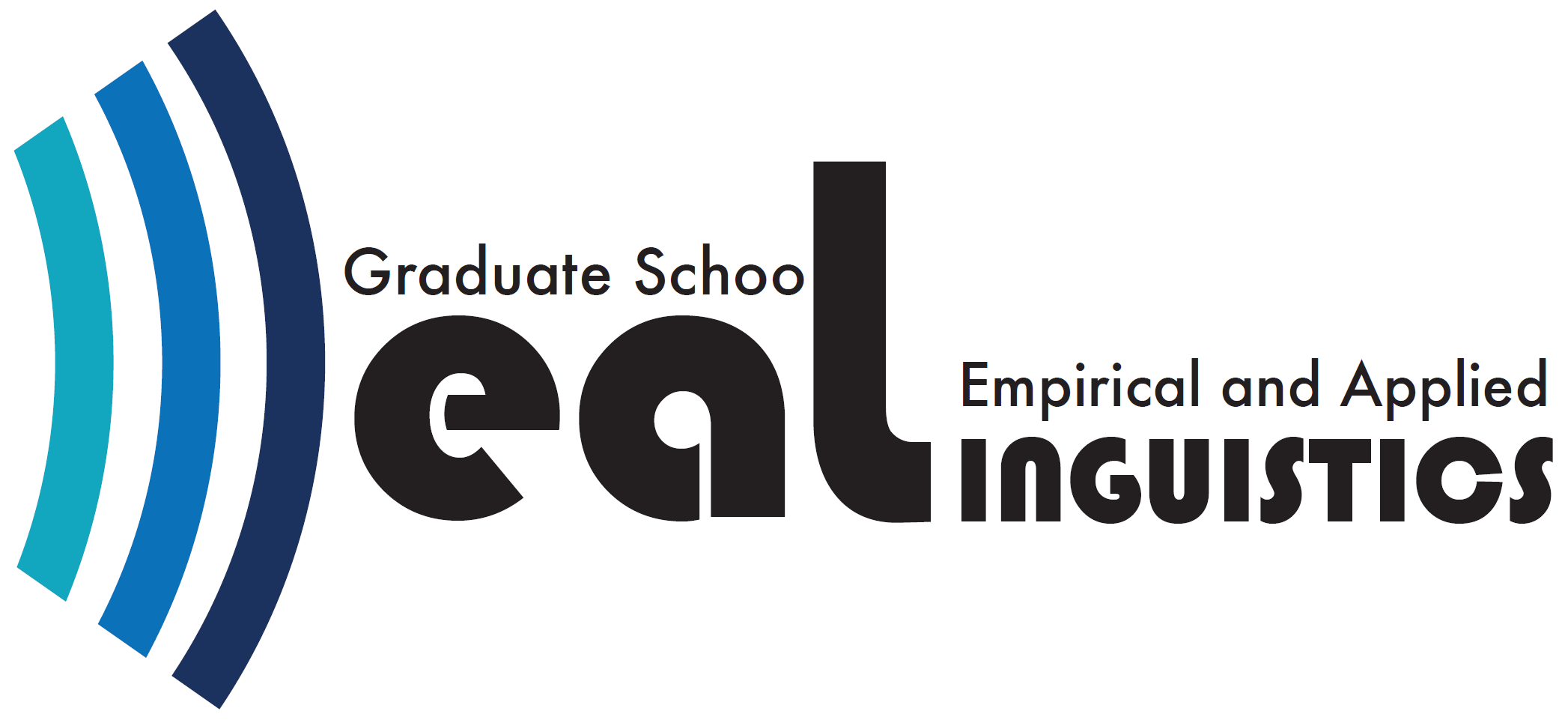Prof. Dr. John Gray

Prof. Dr. John Gray © John Gray Representation and erasure in ELT materials – the strange case of queer absence
Writing at the dawn of this century Alistair Pennycook (2001) noted that one of the 'major silences' in English language teaching is sexual orientation. Despite several decades of progressive social reform with regard to LGBTQ protection in many countries around the world demands that the ELT curriculum addresses this silence have fallen largely on deaf ears. ELT materials remain firmly focused on the representation of a heteronormative world in which non-normative ways of being are ruthlessly erased. In this talk I will explore the complex set of reasons as to why such erasure persists in ELT and educational settings more generally. In doing I will pay particular attention to the concepts of 'reproductive futurism' (Edelman, 2004), 'hyper-reactionary neoliberalism' (Fraser, 2017), 'postfascism' (Traverso, 2019) and the commercial logic of global edu-business (Gray, 2013). I will conclude by considering the possibilities open to language teachers who wish to address this issue in their teaching.
Prof. Dr. John Gray (University College London)
John Gray is Professor of Applied Linguistics and Education at University College London, UK. His research interests are in the global spread of English; the ways in which neoliberal ideology plays out in language teaching and language teacher education; language teacher identity; and issues of gender and sexuality in language teaching and beyond. Recent publications include: Education and the Discourse of Global Neoliberalism (2021), published by Routledge and edited with John O'Regan and Cathie Wallace; Social Interaction and English Language Teacher Identity (2018), published by Edinburgh University Press and co-written with Tom Morton; and a special issue of Gender and Language (2018) on intersectionality, language and queer lives, co-edited with Melanie Cooke.
Prof. Dr. Theodossia-Soula Pavlidou

© Theodossia-Soula Pavlidou Reflections on language-gender-sexism
Discussions on the linguistic representation of gender have gained momentum in the last decade, partly instigated by the institutional/legislative changes that took place in several countries. Given the considerable developments that both linguistic and feminist theories have undergone since the 1970s, it is of no surprise that such discussions currently unfold under different premises from those in the years before. Among others, proposals for a gender-fair language now face not only the challenge of the ‘generic masculine’ but also of whether/how to accommodate the non-binarity of gender. Important as these projects are, they tacitly share an orientation to written discourse and an understanding of ‘language’ that does not do justice to the interactional turn within sociolinguistics, pragmatics, etc.
In this talk, I will make a case for paying greater attention to spoken interaction – and all that this entails – and shifting the focus from top-down measures to what we everyday do, when using language. I will first explicate some basic concepts and point to research that underpins the issues involved. By way of exemplification, Modern Greek, which is quite similar to German as far as gender is concerned, will be serving as an object language. However, apart from the deeply-rooted presence of grammatical gender in its system, Modern Greek also bears the burden of a diglossic past that reverberates in the present. In particular, the tension between ‘demotic’ and ‘learned’ manifestations of professional terms for women lends the search for gender-fair solutions in person reference another twist – and further complications!
Empirical explorations of attitudes towards alternative expressions can of course help decide on acceptable forms. However, targeting individual linguistic expressions can at best counter overt linguistic sexism and runs the risk of being downgraded to political correctness. Most importantly, given that actual language use can always override top-down measures, it is suggested that trying out non-sexist use of language within one’s own communities of practice offers more viable perspectives for bottom-up changes in the long run. Thus, individual-collective practices and responsibilities in everyday use have to be foregrounded and to build the backdrop against which normative interventions are undertaken.
Prof. Em. Dr. Theodossia-Soula Pavlidou (The Aristotle University of Thessaloniki)
Theodossia-Soula Pavlidou is Professor (em.) for pragmatics and sociolinguistics at the Aristotle University of Thessaloniki. She has held multiple academic positions, mostly in Germany and Greece, including a position as a visiting professor at the Freie Universität Berlin. Researchers from all career stages have profited from her vast knowledge in a wide array of summer schools, supervised phd projects, and her work for editorial boards, such as the Journal of Pragmatics. Her research interests span from communication theory to gender linguistics to conversation analysis.
Prof. Dr. Galina Putjata

Prof. Dr. habil. Galina Putjata © Galina Putjata “Your children have to learn German first, and it must be proper German.” Language related notions of normality in educational contexts. Challenges in current theoretical and methodological discourse on research in language and power.
"Imagining multilingual schools - How come we don't deliver?" - This is how the state of multilingualism in educational contexts was summarized in 2006 (Shohamy 2006). Today, almost two decades later, a number of psycholinguistic and socio-political arguments are available, supported by the findings of empirical teaching and school development research (Poarch/Bialystok 2017; Melo-Pfeifer/Helmchen 2018). Yet despite normative-theoretical discourses, scientific arguments and effective methods, educational institutions and their actors in many countries, continue to follow a monolingual norm (Putjata et al. 2022; Thoma 2022; Cunningham 2023; Schwartz et al. 2023). Their expectations of a language homogenous learner group a) shape children’s language development, b) individuals’ participation in education and society and finally, affect teachers’ own perception of self-efficacy: when language homogeneity is the norm, language heterogeneity becomes a problem (Putjata 2022)
In my talk, I will present several research projects that approach the topic from different perspectives: the perspective on language policies on the macro level of politics, the meso level of educational institutions and the micro level of classroom interaction. Theoretically, I will build on concepts of linguistic market, language awareness and language education policy with focus on language identity construction. The contextual framework is provided by studies in Israel and Germany.
The projects allow deep insights into how individuals’ notions of a language norm emerge and develop under varying language policies. In this findings part, I will first present implications for educational settings on the empirical level and then contextualize these findings, presenting challenges in current theoretical and methodological discourse on research in language and power.
Prof. Dr. habil. Galina Putjata (Goethe University Frankfurt)
Galina Putjata is Professor for Mulitlingualism and Education at the University Frankfurt. She was socialized in the Ukrainian educational system before starting her studies at the University of Dresden and Université de la Réunion. She then worked as a teacher for French, Spanish and German in Dresden and Madrid. Her PhD thesis focused on multilingual development and was completed in Montreal and Dresden. She habilitated in educational science at the University of Hamburg with a thesis on language education and multilingualism. In her post-doctoral phase, she did research in Israel, was head of the module "German as a Second Language" in the field of Intercultural Pedagogy at the University of Münster, worked as Senior Lecturer at the University of Landau and was Visiting Professor for German as a Second Language at the European University of Flensburg. Her today's interests lie in children’s perspectives, transnationalisation and participatory research.

